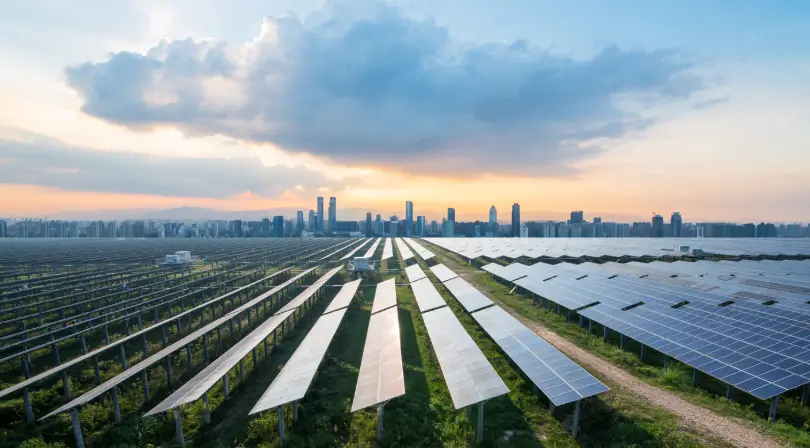COMMERCIAL SOLAR SOLUTIONS: In a time of global consciousness towards environmental sustainability, businesses are increasingly seeking renewable energy sources for their operations. Of the renewable energy sources available, solar energy is emerging as a particularly attractive source of renewable energy for commercial entities that are interested in sustainability, as well as saving money on energy costs. Commercial solar solutions are becoming a viable, and ever-increasingly popular energy source for businesses looking to go green and save money.
Growth of Commercial Solar Solutions
The use of solar power by businesses has exploded in the last few years for many reasons. One of the main reasons is the continued decline in the cost of solar technologies. With economies of scale and developments in photovoltaic (PV) technologies, solar panels and related equipment have become markedly less expensive. With this decrease in costs, businesses of all sizes can now take advantage of renewable solar energy, and create solar systems in a shorter time period with greater returns on investment.
-
Alongside this, governments and regulatory agencies in some regions offer opportunities and prospects in an effort to advance solar development, in the context of the development of solar energy. The incentives and subsidies likely to be offered to organizations developing solar manufacturing capabilities are usually in the form of tax credits, grants, or similar initiatives, which can assist organizations financially.
Advantages to Commercial Solar Energy Solutions
The advantages of commercial solar energy solutions are not only limited to environmental benefits, but commercial solar solutions can also provide benefits financially and operationally as well.
Cost Savings:
-
Organizations can generate their own electricity through solar panel systems, which could deliver a significant cost savings in comparison to traditional utility prices from the grid. Ultimately, the savings of the energy prices below will become significantly cheaper than the expense of investing in developing energy from the solar project and will save you net money.
Predictable Costs: The other big advantage of solar energy is that once you have your solar system on site the cost of solar energy will be predictable as opposed to the unpredictable cost of price volatility in the traditional energy market. Organizations will have predictable energy costs from solar energy year after year, independent of whatever market price is going on at that time, allowing organizations to better predict energy expense and the ability to mitigate risk from price fluctuations in the energy market is enhanced. - Environmental Impact:
Considerations for Implementation
While the benefits of commercial solar solutions are compelling, businesses should carefully consider several factors before proceeding with implementation:
- Site Assessment: Conducting a thorough site assessment is essential to determine the feasibility of installing a solar system. Factors such as roof orientation, available space, shading, and local weather conditions can impact the performance and efficiency of the solar panels.
- Regulatory and Permitting Requirements: Businesses must familiarize themselves with local regulations, zoning laws, and permitting requirements governing the installation of solar systems. Compliance with these regulations is crucial to avoid potential legal issues and delays in the project timeline.
- Financial Analysis: A comprehensive financial analysis should be conducted to assess the upfront costs, expected savings, payback period, and return on investment associated with installing a commercial solar system. Businesses should also explore available incentives, tax credits, and financing options to optimize the financial feasibility of the project.
- Maintenance and Monitoring: Regular maintenance and monitoring are essential to ensure the optimal performance and longevity of the solar system. Businesses should establish protocols for routine inspections, cleaning, and maintenance to maximize the lifespan and efficiency of their solar infrastructure.
- Integration with Existing Infrastructure: Integration of the solar system with existing electrical infrastructure and energy management systems is critical to ensure seamless operation and compatibility with the business’s operations and energy needs.
Conclusion
Commercial solar solutions are now more affordable, greener, and easier to find as businesses try to leverage solar while improving their green credentials. With recent advancements in technology, lower costs and supportive policy frameworks for developing energy, businesses and organizations are more compelled to transition to cleaner and sustainable energy sources. This means businesses can assess the viability, costs, returns, environmental and operational challenges of commercial solar solutions as a means to assess whether commercial solar solutions can contribute to their financial, operational and environmental commitments to a better and greener future.
RELATED : CHANNEL
RELATED: The Rise of Residential Solar Solutions: Power of Solar Energy

